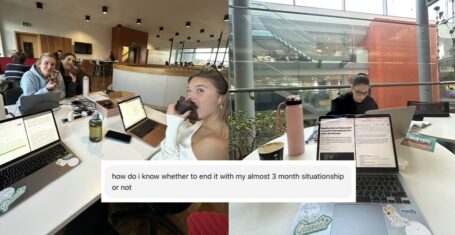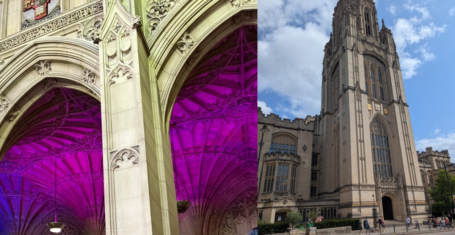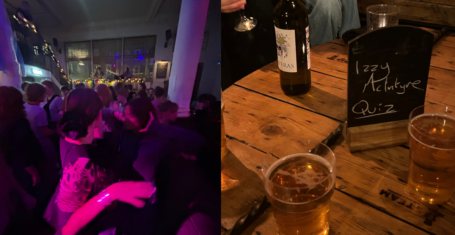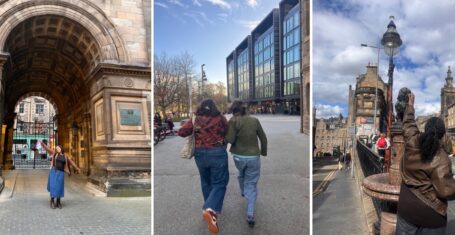
Edinburgh University’s hoarding of colonial artefacts can’t be justified – here’s why
It currently holds a collection of over 400,000 originating from around the world
In the Resource Center of the Main Library during a 9am seminar, myself and fellow students from my history class huddled round dozens of early-modern Ethiopian manuscripts. These manuscripts contained the biographies of Ethiopian saints, written in Gǝʿǝz, an ancient Semitic language, widely considered to be the oldest language in the world and one that not a single person in the room, including those teaching us about these books, were able to read.
Next to each manuscript was information about them and how they were acquired, which more often than not was during the sacking of “the Church of the Saviour of the World” by British soldiers (“Madḫāne ʿĀlam”) during the 1868 Battle of Magdala (Mäqdäla).

The University of Edinburgh currently holds hundreds of thousands of these types of historical artefacts, including over 130,000 geological specimens primarily from the British Isles but also from as far as Siberia, South Africa and Brazil, as well as over “400,000 rare books” and manuscripts.
These include 12 from Ethiopia, which has “at least four items that are highly likely to have been taken” by force, by British soldiers during a period of colonisation. The university rejected a plea in 2004 to repatriate these items.
Since these manuscripts were acquired by Edinburgh University before 1970, they do not need to have complied with policy that their acquisition was not in “violation of that country’s laws”. University policy also states that it may repatriate artefacts, including human remains, back to their country of origin, but will “take such decisions on a case by case basis.”
Most Read
In fact, last year it returned the skulls of four Paiwan tribe member to Taiwanese authorities. However, this begs the question if all other artefacts, acquired through both colonial violence and non-colonial means should also be repatriated.
Despite myself, my history classmates and our tutor being incredibly passionate about the history behind the Ethiopian manuscripts, it did not take away from the fact that however hard we tried, we were incapable of reading them. Moreover, our interest never lessened the fact that they were taken through the violent ransacking of a church.

Whilst the University of Edinburgh is not the biggest hoarder of artefacts acquired through violence, this does not reduce the significance that these objects are thousands of miles from where they were created, under-appreciated by students who will likely not be able to understand a word written on them, and destined only to be shown for one hour before getting boxed away again for another decade.
Although university policy does state that these artefacts are open to the public and accessible for anyone who wants to see them, this “accessibility” is severely reduced for those who must pay travel expenses and apply for a visa – from Ethiopia to Edinburgh, for example, simply to read manuscripts that were written in their own country.
To claim ownership of artefacts that were stolen and to make it challenging for those for whom they were written to be able to see them in person feels like an extension of colonialism into the 21st century.
Whilst I understand the argument that these artefacts allow us to immerse ourselves more in the culture we study and the fact that they can supplement our learning, I still do not believe they benefit us enough to justify keeping them. In the modern world, a replica of these manuscripts or digitised versions of them would not be overly difficult to acquire, meaning they would be able to be repatriated.
In the case of human remains, they should also finally be returned to be given the proper burial rites I believe all people deserve. Storing these pieces of history in boxes, half the world away from where they originated, to only be taken out and stared at for a few hours is not justifiable.
By clinging onto these objects that were not created for us and are not ours to keep, Edinburgh University holds on to the remnants of British colonialism. Although, with the return of the Taiwanese artefacts, progress is being made, it is imperative that the university continues with these repatriations. Whether that be human remains, or religious manuscripts – they must all be sent home.
A spokesperson for the University of Edinburgh said: “As one of the UK’s ancient universities, our 430-plus-year history is long and complex. We are committed to learning lessons from our past, including addressing our colonial legacy and its contemporary impact. In 2021, the Principal commissioned a comprehensive, academically-led review of Race and History, which aims to make reparatory recommendations based on engagement with communities of interest within and beyond our walls. The University’s Collections is one aspect under consideration as part of this review.
“We understand the importance of repatriating items and work with many communities around the world to engage with our collections and to deepen our understanding of them. With all repatriation requests, we undertake a significant process of due diligence and provenance research, community consultation, and to develop a direct partnership with enquiring parties. We know there is more we can do and we look forward to learning from the recommendations of the Review of Race and History.”

















